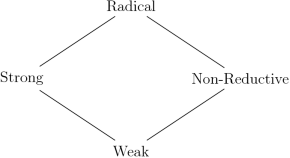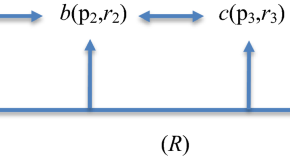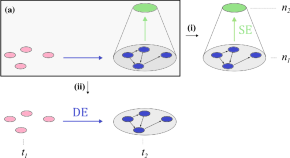Collection
Non-Standard Approaches to Emergence
- Submission status
- Closed
Although emergentism initially intended to resolve the conflict between physicalism and dualism, interestingly, an avatar of this conflict inexorably remains within emergentism itself. Far from occupying the originally targeted mediating middle course, contemporary emergentism is indeed fragmented in a strongly polarized variety of emergentisms. Some emergentist views give the upper hand to dependence at the expense of distinctness (hence coming close to physicalism), while others favor distinctness over dependence (hence verging rather on dualism). Such a polarization has been recently codified into the existence of two mutually exclusive schemas for emergence, into which every possible form of emergentism has been claimed to fit: namely (physicalist-friendly) “weak emergence” and (non-physicalist-friendly) “strong emergence”. Between both these schemas it seems that no conciliatory middle course is to be found. This led some philosophers to adopt a deflationary stance with respect to the initial pretense of emergentism: in no way could one ever coherently “have the cake and eat it too”.
Yet, recent and independent developments, driven by distinct core motivations (e.g. of a historical, metaphysical or empirical nature), have concomitantly participated in mitigating this somewhat pessimistic overview of the state of play. Despite their surface differences, all these endeavors happen to converge on a common attitude. All in their own way, they cast doubt upon (at least) one of the core implicit assumptions of “traditional” (weak or strong) emergentism, leading them to aim at fulfilling the initial emergentist promise of rendering physicalism hospitable to a genuine ontological diversity in non-standard way.
For this special issue, we wanted to prompt our authors to consider questions that are relevant to the emergence debate with an eye to accommodating non-standard approaches to emergence.
Editors
-
Olivier Sartenaer
As an FNRS research fellow and after obtaining a master degree in both physics and philosophy, Olivier Sartenaer received his PhD thesis in philosophy in 2013 at UCLouvain. His dissertation, which involved research at the University of Cambridge and Paris 1 Panthéon-Sorbonne University, was awarded with the triennial « Dopp Prize » of the Higher Institute of Philosophy.
-
Umut Baysan
I am a Departmental Lecturer in Philosophy at the Faculty of Philosophy and St Anne's College, University of Oxford. I have held this position since 2017, though my position was linked to Merton College between 2019 and 2022. Previously, I worked as a University Teacher and a Postdoctoral Researcher in Philosophy at the University of Glasgow (2014-2017). My PhD is also from the University of Glasgow (2015). Before that I studied Philosophy (2008) and Cognitive Science (2011) at Middle East Technical University.
Articles (8 in this collection)
-
-
Non-standard approaches to emergence: introduction to the special issue
Authors
- Olivier Sartenaer
- Umut Baysan
- Content type: Non-Standard Approaches to Emergence
- Published: 07 April 2021
- Pages: 7773 - 7776
-
Invariances in transformational emergence
Authors
- Paul Humphreys
- Content type: Non-Standard Approaches to Emergence
- Published: 27 October 2020
- Pages: 2745 - 2756
-
Similarity structure and diachronic emergence
Authors
- Samuel C. Fletcher
- Content type: Non-Standard Approaches to Emergence
- Published: 12 March 2020
- Pages: 8873 - 8900

-
Temporalizing ontology: a case for pragmatic emergence
Authors
- Ludger van Dijk
- Content type: Non-Standard Approaches to Emergence
- Open Access
- Published: 11 March 2020
- Pages: 9021 - 9034
-
Emergence and structural properties
Authors
- Michele Paolini Paoletti
- Content type: Non-Standard Approaches to Emergence
- Published: 03 March 2020
- Pages: 8755 - 8778
-
Integrated-structure emergence and its mechanistic explanation
Authors
- Gil Santos
- Content type: Non-Standard Approaches to Emergence
- Published: 27 February 2020
- Pages: 8687 - 8711

-
As below, so before: ‘synchronic’ and ‘diachronic’ conceptions of spacetime emergence
Authors
- Karen Crowther
- Content type: Non-Standard Approaches to Emergence
- Published: 02 January 2020
- Pages: 7279 - 7307




